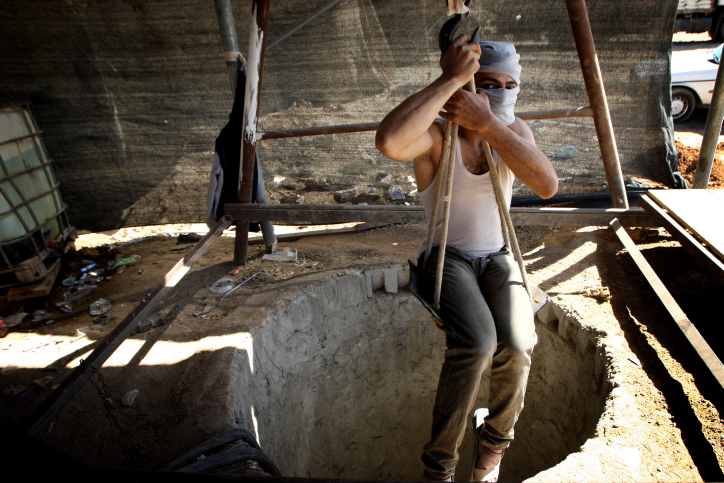Hamas has confiscated building materials supplied by Israel meant for civilian reconstruction and is using it to rebuild bases and terror infrastructure.
By: Lauren Calin, World Israel News
Hamas’s Izz al-Din al-Qassam Brigades boasted on their website Saturday that a number of Hamas training bases have been rebuilt along the border with Israel, suggesting that the terror group is planning to attack Israel again. The IDF destroyed the bases during last summer’s Operation Protective Edge. Residents of Gaza and humanitarian organizations have complained that materials meant to be used towards civilian reconstruction in Gaza have been diverted by Hamas for terror purposes.
According to the website’s report, the main group of training sites, named “al-Yarmouk,” is located east of the al-Shujaiyya neighborhood of Gaza City. Al-Shujaiyya suffered heavy damage during Operation Protective Edge because it was used extensively by Hamas to conceal terrorist infrastructure. For example, al-Shujaiyya contained the entrances of the dozens of tunnels dug by Hamas as part of a plan to carry out a massive terrorist attack against Israeli civilians living in the south. Another training site, called “Palestine,” is located near the evacuated Israeli settlement of Nitsanit.
The report quoted a Hamas official as saying that the bases were being enlarged in order to provide all “the training the mujahedeen could need.” He said that military training near the border would continue “without fear of the occupation’s threats.” The site also claimed that the sound of training was causing “panic” in nearby Israeli communities. “They complained about Hamas preparing for the coming war,” it said.
Hamas has come under criticism for diverting materials intended for reconstruction in order to rebuild its military infrastructure, including the dozens of terror tunnels destroyed during the summer. Despite this, Israel has continued to supply building materials, including cement, to Gaza. The Palestinian Authority has also accused Hamas of embezzling $700 million earmarked for impoverished families.



